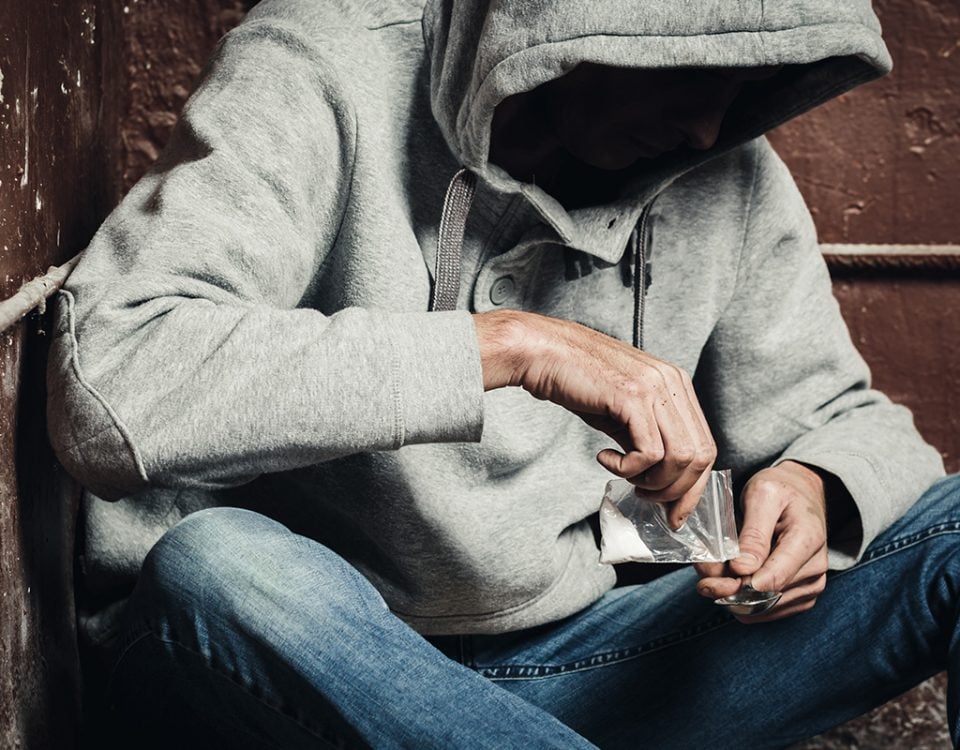Many sleep medications, including common benzodiazepines like Valium and barbiturates like Nembutal, can cause drowsiness, extreme sedation, and physical dependency.
Ambien (the brand name for zolpidem tartrate) is a sedative drug designed in the 1990s as a safer alternative to other hypnotic drugs. Zolpidem (Ambien) belongs to a class of drugs called sedative-hypnotics. These drugs act on the brain to produce a calming effect. While it can help people sleep, what are the side effects of abusing Ambien? Our rehab in Boston is aware that people abuse sedatives and prescription drugs like Ambien, so we wanted to look closer at Ambien's side effects and how it can affect a person’s body down the line.
How Does Ambien Work?
Like benzodiazepines, Ambien (zolpidem) works by activating an inhibitory neurotransmitter called GABA (gamma-aminobutyric acid). GABA is the brain’s primary inhibitory neurotransmitter. Its role is to decrease the firing rates of neurons – or the speed of their activity – within the central nervous system, accounting for Ambien’s sedative effects. GABA also affects sleep cycles, emotional responses, and levels of consciousness. Although the chemical makeup of Ambien differs from benzodiazepines, they both share a similar mechanism of action. As with benzos, not only is Ambien addictive, but overdose is also a common risk of Ambien abuse. Zolpidem is usually prescribed for no more than six weeks and recommended for a shorter period, if possible. Drugs like benzos and Ambien are generally only used as short-term solutions because of their potential for abuse and dependence. People who become addicted to these drugs usually need prescription pill addiction treatment to recover.
Getting into treatment is easy with our free insurance verification
"*" indicates required fields
Short and Long-Term Ambien Effects
When taken as prescribed, Ambien calms the activity in the brain and nerves, making it easier for the person to fall and stay asleep. However, when taken in larger doses, it can negatively impact the cardiovascular, respiratory, digestive, and sensory systems.
“I’m proud of you” is a powerful statement and reminder of how far they’ve come. Most, if not all, recovering addicts have days where they want to throw in the metaphorical towel and give up the race, but your support can keep them going. Acknowledge their commitment to their sobriety in your card in the best way you can.
Some common short-term zolpidem side effects include:
- Sedation
- Confusion
- Dizziness
- Aggression
- Increased heartbeat
- Nausea and vomiting
- Stomach pain
- Diarrhea
- Decreased appetite
- Blurred or double vision
- Slowed breathing
- Muscle cramps
- Allergic reactions (skin rash, hives, shortness of breath, swelling in the face, lips, mouth, or tongue)
- Loss of memory
- Impaired judgment
- Delayed reflexes
- Lack of motor coordination
- Difficulties concentrating
- Disorientation
- Lack of emotion or anhedonia
- Depression and/or suicidal thoughts
- Anxiety
- Insomnia
- Nightmares
Ambien is addictive, and long-term misuse can lead to physical dependence. Over time, this drug habit can cause physical and psychological damage.
Some long-term side effects of Ambien abuse include:
- Digestive problems
- Chronic fatigue
- Constant headaches
- Muscle pain
- Lack of motor coordination
- Tolerance (the need for higher doses to experience the same side effects)
- Withdrawal (uncomfortable physical and psychological reactions when drug use is suddenly discontinued)
- Addiction (using the medication despite its negative side effects on health, job performance, and relationships)
- Doctor shopping
- Forging prescriptions
Ambien addiction and abuse can break down the quality of a person’s relationships. Long-term drug abuse of any kind can not only result in permanent physical damage, but it can also decrease mental health as well. Individuals who do not seek help like our Massachusetts PHP are at a higher risk of losing their health, families, jobs, and lives.
Banyan Massachusetts is dedicated to helping addicts and their loved ones recover from the repercussions of substance abuse. Call our facility today at 888-280-4763 to learn more about our drug and alcohol treatment in Massachusetts.
Related Reading:









